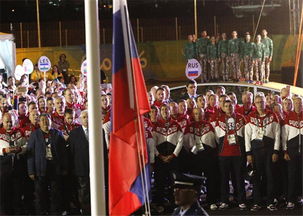Football Player English: A Comprehensive Guide
Are you fascinated by the world of football? Do you aspire to become a professional football player or simply want to deepen your understanding of the sport? Whether you are a beginner or an experienced fan, this article will provide you with a detailed and multi-dimensional introduction to football player English. From the basic terminology to the more complex aspects of the game, we will explore everything you need to know.
Basic Terminology

Before diving into the intricacies of football player English, it's essential to familiarize yourself with some basic terminology. Here's a list of common football terms:
| Term | Definition |
|---|---|
| Goalkeeper | The player responsible for protecting the goal and preventing the opposing team from scoring. |
| Defender | The players who defend their team's goal and prevent the opposing team from scoring. |
| Midfielder | The players who play in the middle of the field, linking defense and attack. |
| Forward | The players who play in the attacking positions, aiming to score goals. |
| Corner Kick | A kick taken from the corner of the field after a goal is scored or a foul occurs in the penalty area. |
| Free Kick | A kick taken from a designated spot on the field after a foul is committed. |
Technical Skills

Technical skills are crucial for a football player to excel on the field. Here are some essential skills to master:
- Dribbling: The ability to control the ball while moving forward.
- Passing: The act of kicking the ball to a teammate.
- Shooting: The act of kicking the ball towards the goal.
- Heading: The act of using the head to direct the ball.
- Defending: The ability to stop the opposing team from scoring.
Physical Fitness

Physical fitness is a vital component of a football player's success. Here are some key aspects to focus on:
- Endurance: The ability to maintain high levels of performance throughout the game.
- Speed: The ability to move quickly on the field.
- Strength: The ability to exert force on the ball and opponents.
- Agility: The ability to change direction quickly and efficiently.
Psychological Factors
Psychological factors play a significant role in a football player's performance. Here are some key aspects to consider:
- Motivation: The drive to succeed and perform well.
- Confidence: The belief in one's abilities and skills.
- Resilience: The ability to bounce back from setbacks and adversity.
- Teamwork: The ability to work effectively with teammates.
Training and Development
Training and development are essential for a football player to reach their full potential. Here are some key aspects to consider:
- Technical Training: Focusing on improving skills such as dribbling, passing, and shooting.
- Physical Training: Focusing on improving endurance, speed, strength, and agility.
- Psychological Training: Focusing on improving motivation, confidence, resilience, and teamwork.
- Game Experience: Gaining experience through playing in matches and tournaments.
Professional Opportunities
Once a player has developed their skills and physical fitness, they can pursue professional opportunities. Here are some key aspects to consider:
- <










